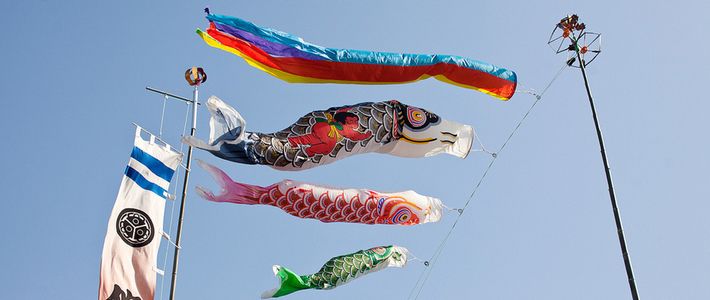
Japan’s National Holidays
Culture- English
- 日本語
- 简体字
- 繁體字
- Français
- Español
- العربية
- Русский
Japan currently has 16 national holidays scattered throughout the year. On these days schools and public offices are closed, and many employers give workers the day off. June is now the only month without a national holiday, since the introduction of Yama no hi (Mountain Day) on August 11, 2016.
Golden Week and Silver Week
Four of the holidays cluster together at the end of April and the start of May to form Golden Week, a popular time for travel when hotels and other accommodation, as well as airlines and long-distance trains, get booked up well in advance.
▼Further reading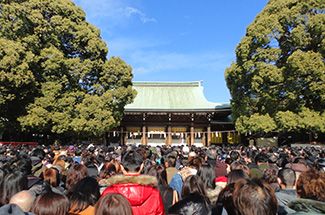 Customs, Festivals, and Observances: The Japanese Year The festivals and customs that mark each season. Customs, Festivals, and Observances: The Japanese Year The festivals and customs that mark each season. |
Many national holidays are set to take place on Mondays, but others are fixed on specific dates. If one of these dates falls on a Sunday, then the following Monday becomes a holiday, ensuring that people get a day off. (If it falls on a Saturday—once a school day in Japan—there is no compensatory replacement day, though.)
In 2015, as September 21 and 23 were both national holidays, there was an extra national holiday on September 22. This “bonus” holiday only occurs when an ordinary working day happens to fall between two holidays, and was first given in 2009, forming “Silver Week.” It was the second Silver Week ever, following the first in 2009.
National Holidays Through the Year
Ganjitsu (New Year’s Day): January 1
The most important holiday of the year and a time for families to get together. Many visit a shrine on this day to pay their first respects of the year.
Seijin no hi (Coming of Age Day): Second Monday of January
A celebration for those young people who have turned 20 and officially become adults during the previous year.
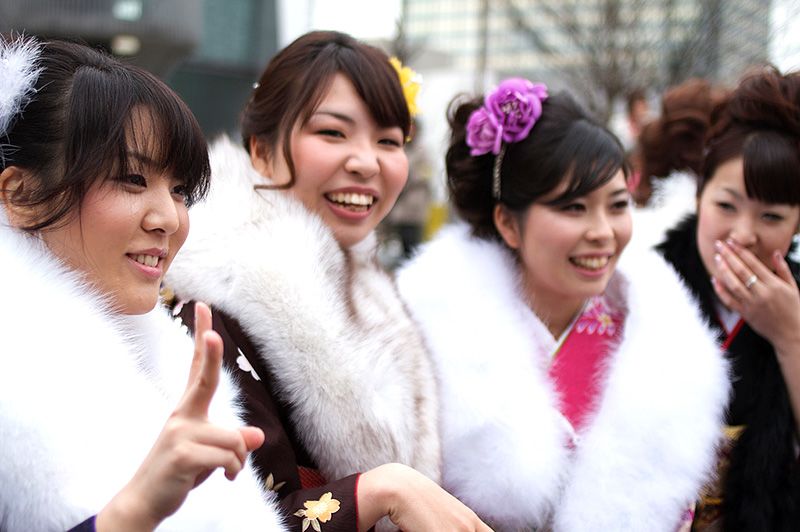 New adults in their finest kimono on Coming of Age Day.
New adults in their finest kimono on Coming of Age Day.
Kenkoku kinen no hi (National Foundation Day): February 11
A celebration of the legendary foundation of Japan, said to have taken place in 660 BC, according to the eighth-century Nihon shoki (Chronicle of Japan).
Tennō Tanjōbi (The Emperor’s Birthday): February 23
A celebration of Emperor Naruhito’s birthday in 1960.
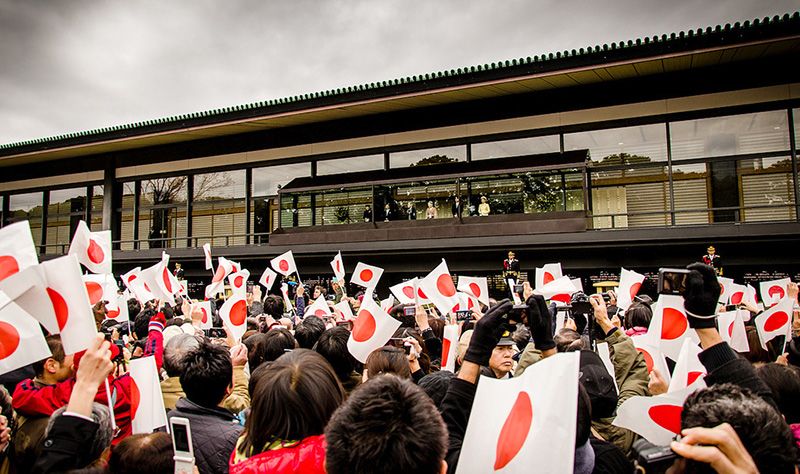 Well-wishers gather to see Emperor Akihito at a 2012 public ceremony at the Imperial Palace on December 23, the previous emperor's birthday.
Well-wishers gather to see Emperor Akihito at a 2012 public ceremony at the Imperial Palace on December 23, the previous emperor's birthday.
Shunbun no hi (Vernal Equinox Day): March 20 or 21
Established as a day for appreciating nature and living creatures. The spring equinox falls on one of these two dates every year until 2092, when it will come on March 19 instead.
Shōwa no hi (Shōwa Day): April 29
Named after Emperor Shōwa, who was born on April 29, 1901.
Kenpō kinenbi (Constitution Memorial Day): May 3
A commemoration of the enactment of Japan’s postwar Constitution on May 3, 1947.
Midori no hi (Greenery Day): May 4
A celebration of plants and the natural world.
Kodomo no hi (Children’s Day): May 5
On the same day as the traditional festival tango no sekku, when parents once gave thanks for the healthy growth of boys, this national holiday celebrates both boys and girls.
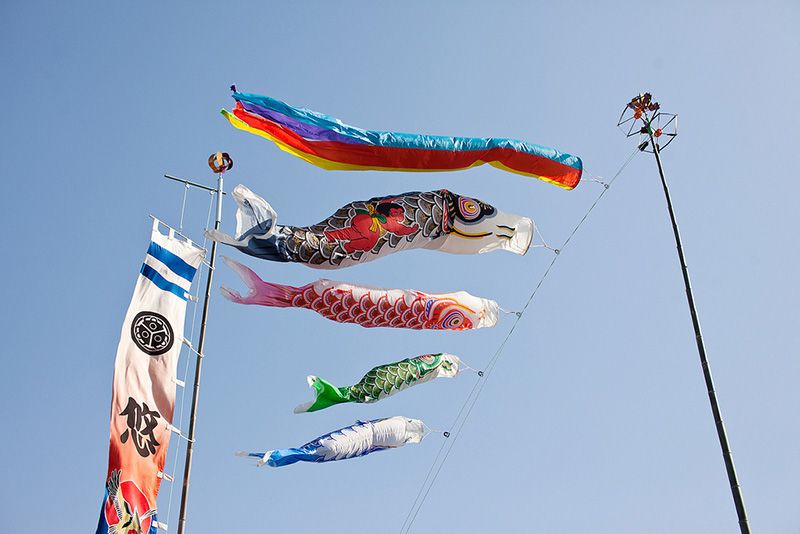 Carp streamers fluttering in the breeze are a symbol of Children’s Day.
Carp streamers fluttering in the breeze are a symbol of Children’s Day.
Umi no hi (Marine Day): Third Monday of July
A day for the island nation Japan to show appreciation for the seas and oceans.
Yama no hi (Mountain Day): August 11
A new holiday that took place for the first time in 2016, celebrating the nation’s peaks.
Keirō no hi (Respect for the Aged Day): Third Monday of September
A day for recognizing the nation’s senior citizens.
Shūbun no hi (Autumnal Equinox Day): September 22 or 23
Established as a day for honoring ancestors and remembering the dead. This event, too, falls on one of these two dates every year until 2103, when it will come on September 24 instead.
Taiiku no hi (Health and Sports Day): Second Monday of October
Many schools hold their sports festivals on or around this date.
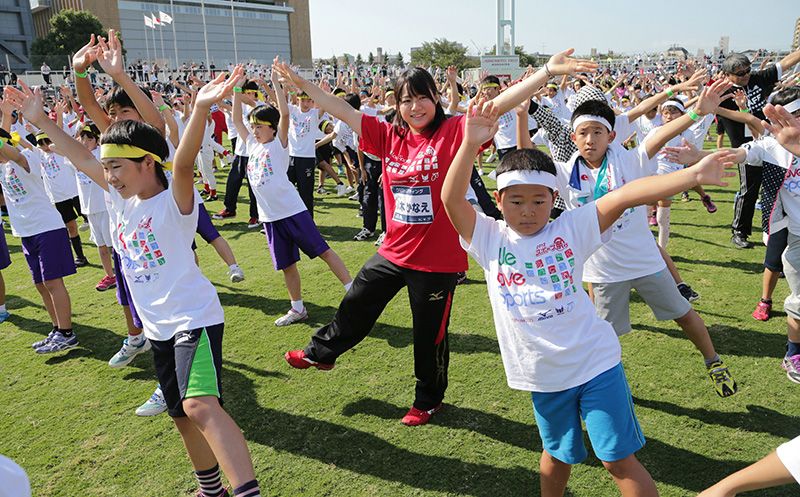 Olympic weightlifter Yagi Kanae warms up with children at a Tokyo event marking 2013’s Health and Sports Day. (© Jiji)
Olympic weightlifter Yagi Kanae warms up with children at a Tokyo event marking 2013’s Health and Sports Day. (© Jiji)
Bunka no hi (Culture Day): November 3
This day, which seeks to promote cultural activities, replaced an earlier national holiday commemorating Emperor Meiji’s birthday.
Kinrō kansha no hi (Labor Thanksgiving Day): November 23
A day for honoring the nation’s workers.
Photo Credits:
Coming of Age Day: Derek A. Children’s Day: Matthew Bednarik Emperor’s Birthday: Alessandro Baffa